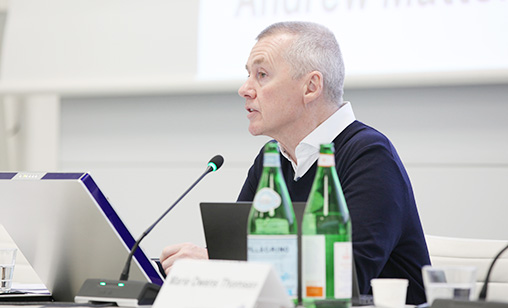Addendum
Average airline profit per passenger seat is US$5.45 – the cost of a Starbucks latte
The latest profit projections for the world’s airlines appear promising, but as ever the devil is in the detail. The truth is most carriers struggle to achieve reasonable returns for their businesses, reports associate editor and chief correspondent, Tom Ballantyne, from Geneva.
December 1st 2023
The International Air Transport Association (IATA) may have announced strengthened profit projections for airlines in 2023 and an expectation of improved income in 2024, but it also pointed out earlier this month the industry’s global net profitability is predicted to be well below the cost of capital in both years. Read More »
In hard figures, airlines are forecast to report a $23.3 billion net profit for 2023, a mere 2.6% net profit margin. In 2024, collective net profits for the world’s air carriers are predicted to reach $25.7 billion, an increase in net profit to 2.7%. IATA director general, Willie Walsh, said: “Although it sounds like a big figure on an aggregate basis, in margin terms we are still significantly below where we need to be and significantly below where we were pre-pandemic,” he said.
 |
Speaking at the airline association’s Global Media Day in Geneva in early December, Walsh said considering the major losses of recent years, the $25.7 billion net profit expected in 2024 is a tribute to aviation’s resilience. “The speed of the recovery has been extraordinary; yet it also appears that the pandemic has cost aviation about four years of growth,” he said.
“Of course, many airlines are doing better than that but many are struggling. On average, airlines will retain US$5.45 for every passenger carried - enough to buy a basic ‘grande latte’ at a London Starbucks.” The Starbucks profit margin was 11.5%, he added.
“This is far too little to build a future resilient to shocks for a critical global industry on which 3.5% of GDP depends and from which 3.05 million people directly earn their livelihoods. Airlines will always compete ferociously for their customers, but they remain far too burdened by onerous regulation, fragmentation, high infrastructure costs and a supply chain populated with oligopolies,” Walsh said.
He continued: “I think it’s wrong for people to talk about super profits. Yes, there are some airlines doing well, but in the main this industry is not recovering its cost of capital.
“We have done a lot of work on this. In all markets we examined air fares either have risen in line with general inflation or have lagged slightly behind general inflation. We have access to hundreds of millions of tickets sold and we have analyzed all of them.”
Consumers can expect airfares to continue to track rising costs, particularly oil, IATA predicts, but its data shows competition continues to drive price benefits for consumers. The average real return air fare in 2023 will be around $254, 20% lower than the average fare of $315 in 2019.
In the main, Walsh considered 2023 to be a good year for airlines, but added its members are frustrated by the lack of progress in resolving air traffic control issues in the U.S. and to a lesser degree in Europe and supply chain disruption that is limiting capacity expansion. “So the traffic growth during the year saw demand slightly outstripping capacity,” he said.
Global economic developments, easing inflation, low unemployment rates and strong travel demand are positive developments, Walsh said. Nonetheless, economic strains could arise, he warned. In China, slowing growth, high youth unemployment and disarray in property markets if not managed properly, could impact global business cycles. Similarly, should tolerance of high interest rates weaken, and unemployment rises significantly, the strong consumer demand that has supported the recovery could weaken, he said.
Walsh said there had been no progress on the airport charges front. “Airports still struggle to appreciate the need to act in a commercial fashion. If they are in most cases regulators, monopolies or quasi-monopolies with little incentive to perform in an efficient manner, we will have to continue to focus on this. Many airports aim to significantly increase charges in 2024 way beyond any inflationary issues we have faced in 2023,” he said.
IATA is predicting global cargo revenue to fall to $111 billion in 2024. “It is down sharply from an extraordinary peak of $210 billion in 2021, but it is above 2019 revenues of $101 billion. Yields are being negatively impacted by belly capacity and stagnating international trade, it said.
Whatever challenges airlines face, there is little doubt they will have no difficulty filling their planes with passengers. IATA’s November 2023 passenger polling data revealed more than a third of travelers are traveling more often than they did pre-pandemic. Around 49% of respondents said their travel habits now match their pre-pandemic patterns and only 18% said they were traveling less. Approximately 44% of those surveyed intended to travel more in the next 12 months than in the previous 12 months.
megan moroney says:
January 27th 2024 11:31am